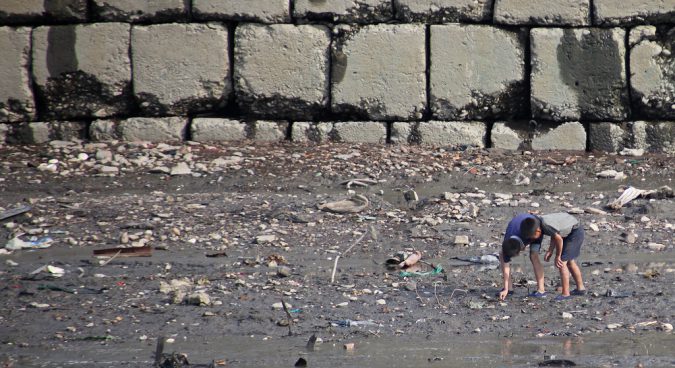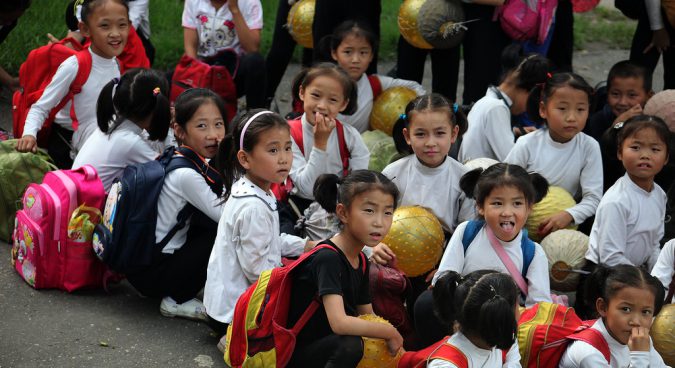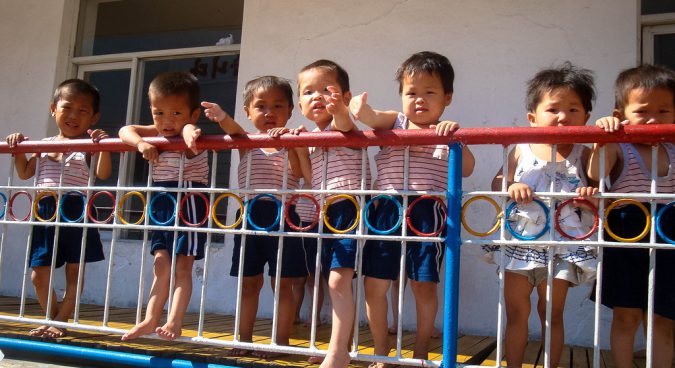
Can aid workers in North Korea help improve local human rights?
The complex demands of humanitarian protection are even more complex when in the DPRK
July 13th, 2017
The most common examples of humanitarian aid include deliveries of food aid, relief supplies, nutritional supplements, and medicines, as well as the dispatching of healthcare workers, disaster risk reduction experts, and others with knowledge that can help communities heal while building capacity.
But less tangible facets of humanitarian aid exist as well, and humanitarian protection is an example of this. Referred to sometimes simply as “protection”, it involves actions that aim to ensure that a population’s human rights are respected.
For example, let’s say a government has chosen to house individuals from a community displaced by flooding in a state-run shelter until they can safely return to their homes, and may decide to give priority to community members from the majority ethnic group, excluding minorities and forcing them to find alternative housing options.
Protection activities could include lobbying the government to adhere to its human rights commitments, supporting legislation that codifies government responsibilities, educating communities on their rights and options if those rights are violated, and sponsoring peace-building activities aimed at reducing the risk of violence.
This is not an exhaustive list of protection activities, and humanitarians may incorporate protection into other areas of their work in an attempt to build resilience and capacity.
PROTECTING NORTH KOREANS?
Humanitarians working in North Korea are not able to denounce human rights abuses at the hands of the government without jeopardizing their access to the country. Unlike in other contexts, humanitarians do not work with local civil society counterparts, as there is no grassroots, organized civil society in the DPRK to speak of – such groups would detract from the regime’s ability to maintain control.
A long-standing debate among DPRK watchers, experts, activists, and aid workers considers which is more effective: remaining silent and delivering aid, or denouncing human rights violations and pursuing other activities such as smuggling information into the DPRK, raising awareness in other countries, or providing support to defectors.
Additional systemic barriers to protection include government resistance to outside groups influencing policy and a lack of enforcement of existing laws. The North Korean regime does not welcome outside criticism or suggestions on how to run their country, and certainly not from humanitarian agencies or in the realm of human rights.
The regime does seem to recognize the importance of human rights on the international stage, and even has some human rights laws codified in its constitution. These include freedom of speech, of the press, of assembly, of religious beliefs, and of movement.
In practice, none of these freedoms are respected.
Humanitarians working in North Korea are not able to denounce human rights abuses
The reality of the situation in the DPRK would appear to suggest that humanitarian protection activities would be nonexistent in North Korea. However, a small number of agencies have found space to engage in protection activities alongside the DPRK government.

What is more productive: delivering aid on the ground, or working to change the country from the outside? | Photo by Roman Harak 

LAYING THE GROUNDWORK
Handicap International, an NGO with full-time resident international staff in the DPRK since 2001, works to support the Korean Federation for the Protection of the Disabled (KFPD). The KFPD was founded in 1998, and is connected to the Ministry of Public Health. It is one of a number of ‘civil society’ organizations in the DPRK – given this moniker by the government, the groups are still effectively state bodies.
The DPRK’s use of ‘civil society’ and even ‘NGO’ to describe these bodies demonstrates that the authorities perceive these terms to be positive for the image of the groups. A major achievement for Handicap International’s partnership with the KFPD came in 2003, when Handicap International supported the adoption of the Law on Protection of Disabled People.
The passing of this law should not be overstated or misunderstood – North Koreans with disabilities continue to face adverse conditions, and reports on mistreatment of people with disabilities range from claims that they cannot live in Pyongyang to allegations of the government forcibly moving children with disabilities into camps. However, the government’s decision to allow an international NGO to have be involved in the passing of a domestic law is notable.
Handicap International works to support KFPD and build KFPD’s capacity. According to the Handicap International website, Handicap International and the KFPD have projects aiming to boost provincial capabilities as well as train and build KFPD project management capacities. In this case, the DPRK is not only accepting NGO assistance, but permitting a foreign group to help shape a domestic body.
The provincial level involvement demonstrates that both parties see the benefit of equipping lower levels of government with tools to better assist North Koreans with disabilities. The KFPD maintains relationships with other NGOs as well, such as the World Federation of the Deaf. The Federation signed an agreement in 2011 with the KFPD, with the aim of promoting the creation of a national association for the deaf in the DPRK, as well as focusing on improving living conditions for deaf people.
This is notable not because it is widespread, but because it allows some insight into the priorities of the authorities
Triangle Generation Humanitaire (TGH) is another residential NGO that has had an office in the DPRK since 2000. Like Handicap International, TGH partners with a North Korean ‘NGO’ – the Korean Federation for Care of the Aged (KFCA). TGH supports KFCA to increase KFCA’s ability to provide for the elderly in homes and through service centers. Activities have included bringing KFCA staff members to visit a similar organization in Beijing, participating in conferences in Indian and Thailand, and building project management skills.
These cases are not indicative of a larger trend of NGOs being involved in protection activities. They are, however, notable examples of what kind of work is possible in the DPRK. Such projects show the growth of depth and opportunity for humanitarian engagement since projects first began in 1995.
Critics may point out that simply working with an organization that purports to help a vulnerable population is not, in fact, a guarantee that the population will benefit. This is a valid argument. But the DPRK’s willingness to allow these liaisons to happen at all is worth reflecting upon. Why would the DPRK allow even minor protection activities unless the authorities believed there was a benefit?

ROOM FOR GROWTH?
The NGOs mentioned above have found space, however small, to work on advancing human rights and improving life for vulnerable populations. This is notable not because it is widespread, but because it allows some insight into the priorities of the authorities.
The North Korean ‘NGOs’ are clearly viewed as important enough to warrant partnerships with international NGOs. Both the KFPD and the KFCA work with specific segments of the population. People with disabilities and the elderly are often considered vulnerable populations in other contexts, which may have influenced the DPRK’s decision to allow protection activities in those areas.
The DPRK’s willingness to allow these liaisons to happen at all is worth reflecting upon
Human rights activists may regard engaging in humanitarian protection as simply another way of supporting the regime. Such critics would likely point out that the North Korean ‘NGOs’ are still governmental in nature, and that knowledge transfer and passage of laws may not have an effect on normal people’s lives.
Humanitarians that strongly believe in delivering aid to the North Korean people may also be wary of attempting to begin protection projects, for fear of jeopardizing their access. So while it is unlikely that humanitarian protection will become a popular area of engagement, it is worth watching how existing partnerships evolve.
Edited by Oliver Hotham
Featured Image: North Korea - Children searching for food by Roman Harak on 2011-09-09 09:39:51


